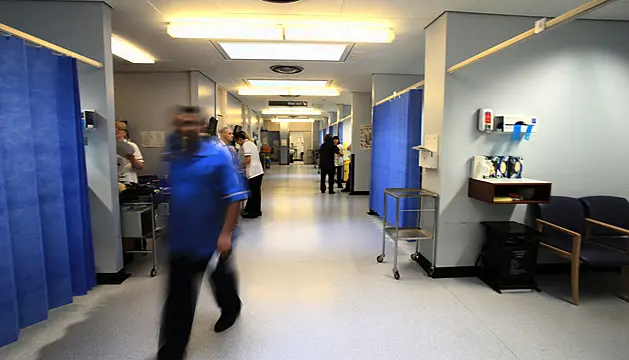Healthcare staff need urgent protection as the number of assaults over the past five years has reached tens of thousands, a leading doctor has warned.
In the seven-year period from 2015-2021, there have been 733 assaults on doctors and 33,342 on nurses in Ireland.
Among the reported injuries were 10 fractures, 42 lacerations, and 505 soft tissue injuries. The commonest perpetrators were the patients themselves followed by family members. The arrest rate was one in 50 and the conviction rate was one in 200.
Dr John A Murphy editor of the Irish Medical Journal has pointed out that healthcare workers are four times more likely to experience violence than those working in private business.
Healthcare staff now believe that safety has deteriorated since the advent of the Covid-19 pandemic.A survey conducted by Pulse5 in the UK found that 34 per cent of GPs reported episodes of assault, while 59 per cent had been threatened.
'Professional obligation'
Since 2018 there have been 253 studies into violence against healthcare staff. The overall patterns show that 57 per cent of healthcare workers suffer verbal abuse while 33 per cent are subject to threats, and 10 per cent suffer physical injury. In the UK, a group of 181 trusts reported 56,435 assaults on staff during 2016-2017.
Dr Murphy said: “Most people in everyday life respond to incivility by trying to ignore the aggressive individual, and by removing themselves from the situation.
“Healthcare workers can’t do this because they have a professional obligation to the patient’s medical care. In many situations the staff feel that have to stay there and take it. They feel that it is part of the job, which clearly should not be the case.
“The impact of hostile behaviour on health care workers is immense. It results in increased resignations, loss of morale, and depression. It is difficult to work in environments where there is background risk of physical and psychological harm from members of the public.”
Dr Murphy pointed out that the high risk areas are Emergency Departments, Psychiatry, and General Practice. However, one of the existing problems is that data on assaults on healthcare workers is not routinely collected.
“The health services in our hospitals, in general practice and in the community need to be aware of any form of aggressive behaviour and aggressive actions towards healthcare staff,” he added.
“In general practice, the secretary is frequently the person who takes the brunt of the verbal abuse. Another consideration is that an abusive individual may pay only (a rare) visit to the ED, while they are likely to visit the general practice on many occasions.
“(Violent) episodes need to be recorded and monitored. Accurate data is required in determining whether the phenomenon is becoming more common. Strategies to protect staff need to be in place in all healthcare facilities.
“All commentators stress the importance of training staff on how to recognise and cope with difficult patients and threatening circumstances. On a broader level we need further sociological investigation into why there are so many episodes of abuse against healthcare staff during the course of their daily duties”.







